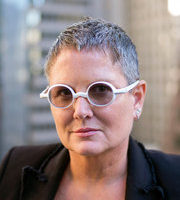
Key considerations for same-sex adoptions
✔ Get your financial and personal records in order, as your net worth and tax returns may need to be reviewed.
✔ Consult a family law attorney to help navigate the path to adoption.
✔ Keep your retirement savings strategy on track as you prepare financially for the adoption.
When the phone call came in mid-January, Christopher Wilson-Byrne, 33, and his spouse, Norman Flynn, 43, were overjoyed and, admittedly, a little stunned.
The caller was from the adoption agency they had been working with for the past five months. She excitedly told the couple the time had come to fly to Kentucky to meet their new baby, Katie, and bring her home.
What was surprising is that the couple’s application to be considered as adoptive parents had been green-lighted only five days earlier. “It was surreal,” says Wilson-Byrne.” We thought we probably had a year or more to go before there would be a match and a birth parent would pick us.”
In truth, the couple, who refer to themselves as the Flynn family and live in Wellesley, Mass., had their hearts set on becoming parents for some time and had been planning for it. When they married three years ago, they both agreed that they wanted to have children, either through adoption or surrogacy. For Wilson-Byrne, a director at Fidelity Investments, being a parent one day had been on his radar for years. “I had a great childhood growing up with three siblings and always assumed I would have kids. But when you’re gay, you realize your family formation will not be the way other families get formed,” he says.
Like the Flynns, LGBT couples are more likely than heterosexual couples to use adoption or surrogacy as a method for family formation. The percentage of same-sex parents with adopted children has risen sharply in the past decade, according to research from the Williams Institute at the University of California, Los Angeles. The think tank is dedicated to conducting independent research on sexual orientation and gender identity law and public policy.
at the University of California, Los Angeles. The think tank is dedicated to conducting independent research on sexual orientation and gender identity law and public policy.
Today, same-sex couples are about four times more likely to raise adopted children than heterosexual couples, the Institute’s research has found. Moreover, as of 2016, same-sex adoption is legal in all 50 states and the District of Columbia, so the process is far easier than it was before gay marriage was legalized in all states.
“Now that gay couples are allowed to marry, they are treated like any other married couple who’s adopting,” says Michele Zavos, managing partner and founder of Zavos Juncker Law Group in Silver Spring, Md., a firm that specializes in family law for the LGBT community. “If they’re married, there is really no difference in the adoption process for same-sex and opposite-sex couples.”
That’s good news. If you’re contemplating adoption or surrogacy, here are eight important steps to consider.
1. Make a future adoption an integral part of your financial plan.
“I knew if I wanted to adopt children one day, it was going to be a large out-of-pocket expense,” Wilson-Byrne says. “I realized that I would need to have enough money saved up to be able to pay for it when the time came. I had been saving for years for the possibility.”
According to the Child Welfare Information Gateway, an adoption can cost in excess of $40,000 , depending on the type of adoption pursued. Possible adoptions include adoptions through foster care systems, surrogacy arrangements, private agency adoptions, independent direct placement adoptions, and international adoptions.
 In lesbian couples, frequently, one partner gives birth to a child born by using one partner’s egg and donor sperm. Donor insemination costs can range anywhere from $300 to $4,000, depending on whether anonymous donor sperm is used. Gay men can do essentially the same thing by using a surrogate to carry a child born from one partner’s sperm and a donor egg. Surrogacy rates can easily top $100,000, says Zavos.
In lesbian couples, frequently, one partner gives birth to a child born by using one partner’s egg and donor sperm. Donor insemination costs can range anywhere from $300 to $4,000, depending on whether anonymous donor sperm is used. Gay men can do essentially the same thing by using a surrogate to carry a child born from one partner’s sperm and a donor egg. Surrogacy rates can easily top $100,000, says Zavos.
The challenge for many couples is figuring out how to save enough money for this sizeable one-time expenditure without abandoning saving for retirement. For the Flynns, the up-front cost was $6,000 for the application process to determine whether the two men were viable candidates for adoption. After their daughter was born and the match made, a placement fee of $38,000 was paid to the agency.
“I wish I had guidance from the time I started working,” says Wilson-Byrne. “I could have worked with a financial adviser who could have said, ‘You are a gay guy who is 25 and working, this is how much money you make, and you should be setting aside x amount for retirement and x amount for a family.’”
Lucky for him, he was a saver by nature. “I was good about saving as aggressively as possible,” he says. “I made sure I lived below my means and was really diligent about saving a good chunk of my salary. I have never, for example, spent a bonus. In the back of my head, I knew there was always going to be this expense that I needed to save for.”
The drawback: Although, he was saving, by his own account, he didn’t save for retirement very well during that time. “I didn’t know how much I should set aside in my 401(k) or IRA versus how much I would need for the adoption process. Ultimately, I had oversaved in my cash accounts but undersaved in my retirement accounts.”
2. Choose a form of adoption.
The Flynns worked with a licensed private agency for their adoption. Private adoption agencies are funded with cash paid by adopting families for their services, which can range from screening applicants, home studies by a caseworker, background checks, matching children and adoptive parents, and legal counsel. Children are frequently newborns but could be of any age up to 17 years. In a private agency adoption, birth parents relinquish their parental rights to an agency, and adoptive parents work with an agency to adopt.
Another option is an independent adoption: Expectant parents (or a pregnant woman) are identified without an agency’s help, and in some instances by an attorney who specializes in adoption. He or she may identify expectant parents who are seeking an adoptive family.
A third option is a public adoption agency. These agencies get their funding from local, state, and federal sources. They typically have a foster care and an adoption component. Children usually enter the system either by a parent surrendering the child to the local child welfare system or a local court terminating a parent’s rights because of abuse or neglect. Children may range from newborn to 17 years of age.
Finally, there are international adoptions where adopting parents cover all the cost. The U.S. Department of State and the U.S. Citizenship and Immigration Services (USCIS ) set the procedure. Adoptions abroad are governed by the laws of both the United States and the adoptee’s home country. In recent years, the United States has banned adoption from several countries, including Cambodia, Vietnam, and Nepal, after evidence of fraud surfaced. Guatemala also stopped overseas adoptions. Moreover, many foreign countries don’t allow gay couples to adopt.
) set the procedure. Adoptions abroad are governed by the laws of both the United States and the adoptee’s home country. In recent years, the United States has banned adoption from several countries, including Cambodia, Vietnam, and Nepal, after evidence of fraud surfaced. Guatemala also stopped overseas adoptions. Moreover, many foreign countries don’t allow gay couples to adopt.
Tip: A pre-adoptive family must meet the requirements of their legal state of residence. The Child Welfare Information Gateway has resources on licensed, private agency and independent adoption and offers information on state laws regarding consent, as well as detailed information on the process and requirements for different types of adoption.
on licensed, private agency and independent adoption and offers information on state laws regarding consent, as well as detailed information on the process and requirements for different types of adoption.
3. Ask far-reaching questions.
In addition to asking the adoption agency about all the costs involved, Wilson-Byrne and Flynn, for example, asked the following: Have you been successful placing children with gay men? Can you provide references from other couples whom you have placed children with in the last two years and whom we can talk with?
Another upside: The couple was required to participate in group discussions orchestrated by the agency with other potential adoptive parents. The group consisted of gay, heterosexual, and single parents, says Wilson-Byrne, and “some were back for their second adoptions, so we could learn from their experience.”
4. Get your financial and personal records in order.
The application process isn’t for the faint of heart. “It was a robust application process,” Wilson-Bryne says. “First, there’s an application, including a personal essay and references. We also put together ‘getting to know you’ material, which included a photo album of Norman and me. We wanted them to know what it would be like to live with us—our home and things we like to do, like cooking and traveling and going to the beach.”
Be prepared for a thorough vetting process. This may include full medical exams and a background check review process similar to an FBI clearance. Importantly, your financial picture is reviewed, including statements of your net worth and tax returns.
Tip: Where to keep important documents can be an issue for any couple. A secure virtual safe, such as FidSafe® , is a good option.
5. Consult a family law attorney.
If you are considering same-sex adoption, it’s wise to speak with an attorney in your state to learn the current laws and regulations in your jurisdiction, says Zavos. “We have ongoing relationships with adoption agencies, surrogacy agencies, egg/embryo/sperm donation agencies, fertility centers, and other organizations across the country and around the world that are dedicated to helping people with family formation.”
Some attorneys who specialize in adoption are members of the American Academy of Adoption Attorneys , a professional membership organization with standards of ethical practice.
, a professional membership organization with standards of ethical practice.
“I represent and consult clients trying to bring children into their families, so I talk with my clients about the range of options—private placement, agency placement, and international adoption,” says Zavos.
Every state has different family laws regarding adoption, she says. Some states allow attorneys to actually place children for adoption like an agency would. Other states allow attorneys to only recommend an adoption agency. Some states allow adoptive parents to pay the living expenses and legal and medical expenses for the birth mother or for the child while he/she is under the care of the adoption agency. There are others that allow only legal and medical expenses and fees.
For surrogacy, a lawyer like Zavos can prepare and review gestational carrier agreements, review contracts with surrogacy agencies, and seek pre- and post-birth orders so that the intended adoptive parents will have legal rights to their child as quickly as possible.
“We also recommend that anyone intending to use an egg/embryo/sperm donor or obtain an embryo in order to grow a family prepare a contract that sets out all the agreements reached between the parties, including rights to confidentiality, disclosure of identities, payments, parental rights, court orders, and any other agreements that affect legal relationships to the child,” she says.
The common pitfalls: People are not aware how much it costs, says Zavos. They often forget about the birth father’s rights. They don’t fully understand their agency contracts. For example, a client of Zavos adopted in Texas and paid living expenses through an agency for the birth mother during her pregnancy. At the last minute, the woman decided not to place the child for adoption, which is her prerogative. They wanted all the money back from the agency, but that’s not how it works.
You typically lose your up-front money if the birth mother changes her mind, explains Zavos. Also, many couples don’t realize that they have no recourse if the birth mother decides to change her mind during the revocation period. In Maryland, the revocation period is 30 days after birth. The child may be placed with potential adoptive parents, but if the birth mother changes her mind on the 29th day, there is really no recourse. Every state has a different time period.
While the Flynns’ legal work was handled by the agency’s counsel, many adoptive parents hire their own attorney to smooth the process of adopting a child from another state. People who adopt children from other states must abide by the Interstate Compact on the Placement of Children for the state where the birth takes place and also for the state where the child will live.
for the state where the birth takes place and also for the state where the child will live.
Documents are presented first to the state in which the child is born and then to the state where the child will be living. The relocation of a child follows the state regulations of both states. Once both states approve the placement, the child can move to the new adoptive home. This process can be quick. The Flynns’ child, Katie, was born on a Saturday, and the couple was cleared to take her home to Massachusetts four days later.
Tip: Consider hiring an attorney to help you update your will, name guardians, and research life insurance needs.
6. Take advantage of employer benefits.
Check with your human resources department to find what adoption benefits are available. Some employers will reimburse some or all of the expenses related to adoption. Many employers offer paid parental leave for adoptive parents. Wilson-Byrne, for example, qualified for six weeks of paid parental leave from his employer.
The Family and Medical Leave Act (FMLA) provides for a number of benefits, including up to 12 weeks of unpaid leave to care for a newly adopted child. The FMLA applies to all public agencies, including state, local, and federal employers, and local education agencies and schools. It also applies to all private sector employers who employ 50 or more employees. To be eligible for FMLA leave, you must work for a covered employer and have worked for that employer for at least 12 months.
(FMLA) provides for a number of benefits, including up to 12 weeks of unpaid leave to care for a newly adopted child. The FMLA applies to all public agencies, including state, local, and federal employers, and local education agencies and schools. It also applies to all private sector employers who employ 50 or more employees. To be eligible for FMLA leave, you must work for a covered employer and have worked for that employer for at least 12 months.
7. Tap tax breaks.
Tax benefits for adoption include a tax credit for the qualified adoption expenses paid to adopt an eligible child. The credit is nonrefundable, which means it’s limited to your tax liability for the year in which the adoption takes place. The maximum credit for 2017 is $13,570 per child, if your modified adjusted gross income is equal to or less than $203,540. If your modified adjusted gross income is more than $203,540 but less than $243,540, you will receive a reduced tax credit.
Qualified adoption expenses include adoption fees, court costs and attorney fees, and traveling expenses (including amounts spent for meals and lodging while away from home). An expense may be a qualified adoption expense even if it is paid before an eligible child has been identified and you have not adopted in that tax year. Generally, the credit is allowable whether the adoption is domestic or foreign. However, depending on the type of adoption, the timing rules for claiming the credit for qualified adoption expenses differ.
Fidelity Viewpoints – June 2, 2017
Click here to read the entire article.
The post Tips for same-sex adoptions – Information to Help You on Your Journey appeared first on Time For Families.
Source: Time for Families












